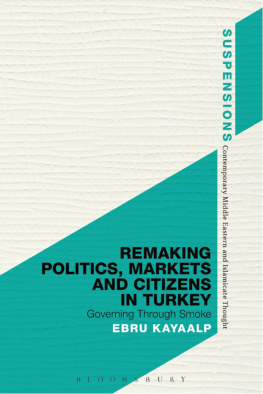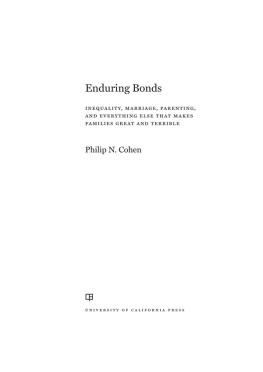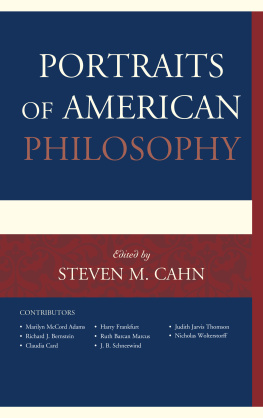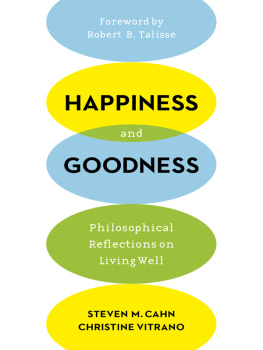Cahn Naomi - Marriage markets how inequality is remaking the American family
Here you can read online Cahn Naomi - Marriage markets how inequality is remaking the American family full text of the book (entire story) in english for free. Download pdf and epub, get meaning, cover and reviews about this ebook. City: Oxford;United States, year: 2015;2014, publisher: Oxford University Press, Incorporated, genre: Home and family. Description of the work, (preface) as well as reviews are available. Best literature library LitArk.com created for fans of good reading and offers a wide selection of genres:
Romance novel
Science fiction
Adventure
Detective
Science
History
Home and family
Prose
Art
Politics
Computer
Non-fiction
Religion
Business
Children
Humor
Choose a favorite category and find really read worthwhile books. Enjoy immersion in the world of imagination, feel the emotions of the characters or learn something new for yourself, make an fascinating discovery.

- Book:Marriage markets how inequality is remaking the American family
- Author:
- Publisher:Oxford University Press, Incorporated
- Genre:
- Year:2015;2014
- City:Oxford;United States
- Rating:4 / 5
- Favourites:Add to favourites
- Your mark:
- 80
- 1
- 2
- 3
- 4
- 5
Marriage markets how inequality is remaking the American family: summary, description and annotation
We offer to read an annotation, description, summary or preface (depends on what the author of the book "Marriage markets how inequality is remaking the American family" wrote himself). If you haven't found the necessary information about the book — write in the comments, we will try to find it.
Cahn Naomi: author's other books
Who wrote Marriage markets how inequality is remaking the American family? Find out the surname, the name of the author of the book and a list of all author's works by series.
Marriage markets how inequality is remaking the American family — read online for free the complete book (whole text) full work
Below is the text of the book, divided by pages. System saving the place of the last page read, allows you to conveniently read the book "Marriage markets how inequality is remaking the American family" online for free, without having to search again every time where you left off. Put a bookmark, and you can go to the page where you finished reading at any time.
Font size:
Interval:
Bookmark:
Marriage Markets
How Inequality Is Remaking the American Family
JUNE CARBONE
and
NAOMI CAHN


Oxford University Press is a department of the University of Oxford.
It furthers the Universitys objective of excellence in research, scholarship, and education by publishing worldwide.
Oxford New York
Auckland Cape Town Dar es Salaam Hong Kong Karachi
Kuala Lumpur Madrid Melbourne Mexico City Nairobi
New Delhi Shanghai Taipei Toronto
With offices in
Argentina Austria Brazil Chile Czech Republic France Greece
Guatemala Hungary Italy Japan Poland Portugal Singapore
South Korea Switzerland Thailand Turkey Ukraine Vietnam
Oxford is a registered trade mark of Oxford University Press in the UK and certain other countries.
Published in the United States of America by
Oxford University Press
198 Madison Avenue, New York, NY 10016
Oxford University Press 2014
All rights reserved. No part of this publication may be reproduced, stored in a retrieval system, or transmitted, in any form or by any means, without the prior permission in writing of Oxford University Press, or as expressly permitted by law, by license, or under terms agreed with the appropriate reproduction rights organization. Inquiries concerning reproduction outside the scope of the above should be sent to the Rights Department, Oxford University Press, at the address above.
You must not circulate this work in any other form and you must impose this same condition on any acquirer.
Library of Congress Cataloging-in-Publication Data
Carbone, June.
Marriage markets: how inequality is remaking the American family / June Carbone and Naomi Cahn.
p. cm.
Summary: June Carbone and Naomi Cahn examine how macroeconomic forces are transforming marriage, and how working class and lower income families have paid the highest priceProvided by publisher.
ISBN 9780199916580 (hardback)
1. FamiliesEconomic aspectsUnited States. 2. MarriageEconomic aspectsUnited States.
3. Domestic relationsUnited States. 4. EqualityUnited States. 5. Working classEconomic aspects
United States. 6. Social classesUnited States. I. Cahn, Naomi R. II. Title.
HQ536.C348 2014
306.850973dc23 2013045704
1 3 5 7 9 8 6 4 2
Printed in the United States of America on acid-free paper
In writing a book about marriage markets, we have incurred many debtsof gratitudeto so many people for their support of our work on this project. Weve benefited from discussion and editing from numerous colleagues, friends, and family members. For their review of our work and engagement with our ideas, we thank Bill Black, Don Braman, Tonya Brito, Maxine Eichner, Martha Fineman, Tony Gambino, Marsha Garrison, Jill Hasdsay, Pat Hernandez, Nancy Levit, Linda McClain, Hanna Rosin, and Buffie Scott. Thank you to our OUP editor, Dave McBride, for believing in what we are selling. We are particularly grateful to Michael Guttentag for sharing some of his experiences as a teenager talking to his mother, Marcia Guttentag, about the development of her book on sex ratios. Weve benefited from presenting early pieces of this book at numerous conferences and faculty fora, including Bowdoin College, Boston University, Hofstra University, New England School of Law, St. Louis University, the University of Florida, the University of Miami, Michigan, Michigan State, Missouri, and Wisconsin, and we have appreciated the work of numerous law review editors at Hofstra, New England, Michigan State and the University of Nevada-Las Vegas as they have worked on articles related to the book. We would also like to thank the many colleagues who have listened to usfor many yearsas we have explored the ideas in this book, including Jewel Allers, Barbara Glesner-Fines, Michele Goodwin, Viviana Grieco, Mary Kay Kisthardt, Mary Kay OMalley, and those who have helped us with research, including Mary Kate Hunter, Jodi LeBolt, and Jessica Qian. We have benefited from the generous research support of the Universities of Missouri-Kansas City and Minnesota and George Washington University.
For their belief in equality, and for their understanding of the seemingly infinite amount of time consumed by our writing this book, we thank our own familiesBill, Galen, Genina, and Kenny, Tony, Louisa, and Abigail.
The American family is changingand the changes guarantee that inequality will be greater in the next generation. For the first time, Americas children will almost certainly not be as well educated, healthy, or wealthy as their parents, and the result stems from the growing disconnect between the resources available to adults and those invested in children. The time to address the real explanation for the changing American family is now.
The changes themselves, of course, have been the subject of endless commentary, both positive and negative. The age of marriage is going up, the rate of marriage is falling, and almost half of all marriages fail. An increasing number of states allow women to marry women, and men to marry men. The number of children born outside of marriage is drawing equal with the number of children born within marriage. And, the percentage of children growing up in single-parent households is the highest in the developed world. These changes, however, do not affect everyone equally. Describing how the average family has changed hides what is really going on: economic inequality is remaking the American family along class lines, and families are not going through the same changes together. To understand what is happening to the American familyand how family law locks in the growing class divisionsrequires examining the links between family change along the continuum from the top to the bottom of the American economy.
In the process, many of the existing explanations for why the American family today is so radically different from the American family of fifty years ago will prove hollow. The right blames declining moral values, the pill, welfare as we knew it, the rise of soulmate marriage, and a host of other social ills without providing a convincing explanation of why these changes affect one group more than another. The left celebrates individual choice, sexual liberation, and womens equality without acknowledging that not all sources of change are benign and that the consequences of some of the changes they support contribute to the growing inequality they oppose. Neither group provides a complete explanation of these changes, and without a better explanation of why the top and bottom of American families are moving in opposite directions, efforts at family reform will remain futile.
A complete explanation of family change requires taking seriously the role of class in scripting our lives as well as the effect of greater economic inequality in remaking the terms of marriage, divorce, and childrearing. Such an explanation needs to address not just why marriage has disappeared from the poorest communities, but also why, in a reversal of historical trends, elite women have become the most likely to marry. It requires the ability to explain why divorce rates, which for decades moved in the same direction for the country as a whole, are now diverging, falling back to the levels that existed before nofault divorce for the most educated while continuing to rise for everyone else. A comprehensive analysis must also be able to make sense of the decisions of working-class women, who often describe themselves as religious or conservative, to have children on their own even when the fathers of their children are willing to propose.
Next pageFont size:
Interval:
Bookmark:
Similar books «Marriage markets how inequality is remaking the American family»
Look at similar books to Marriage markets how inequality is remaking the American family. We have selected literature similar in name and meaning in the hope of providing readers with more options to find new, interesting, not yet read works.
Discussion, reviews of the book Marriage markets how inequality is remaking the American family and just readers' own opinions. Leave your comments, write what you think about the work, its meaning or the main characters. Specify what exactly you liked and what you didn't like, and why you think so.








